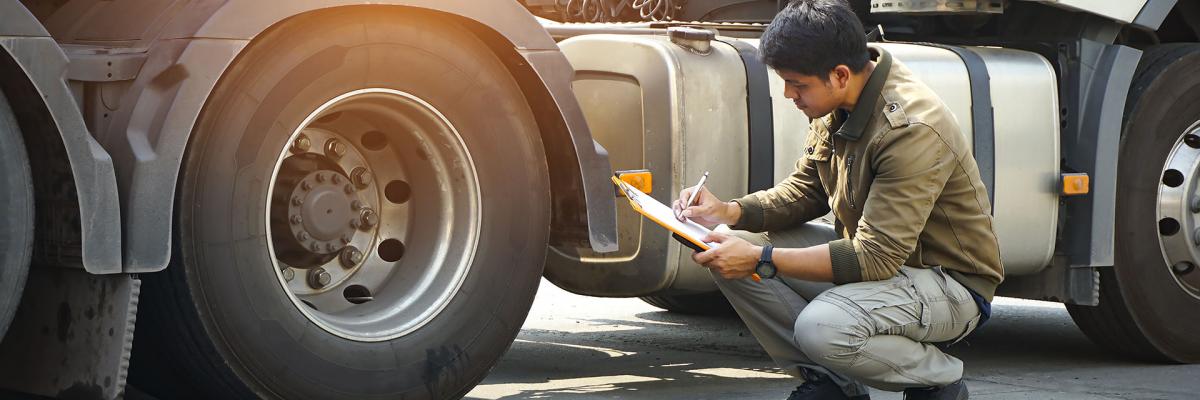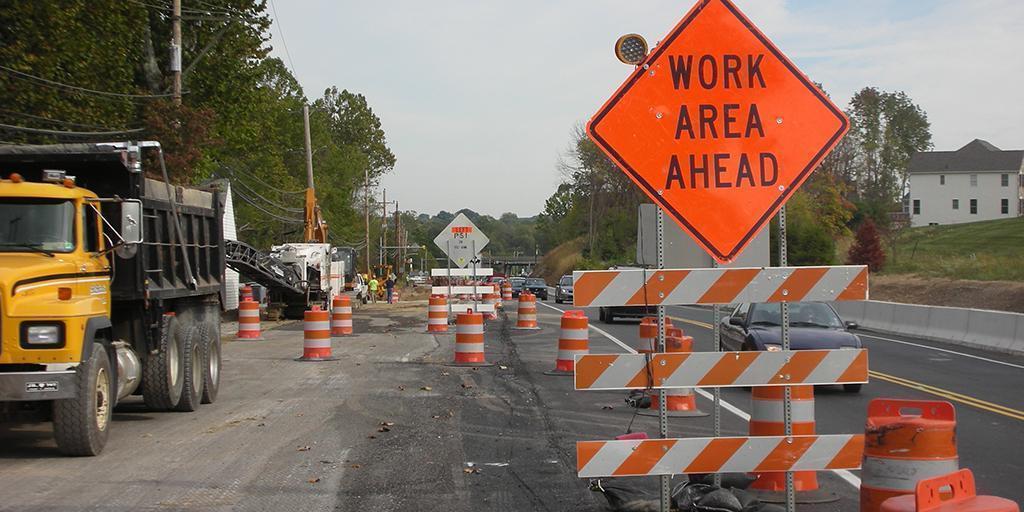Breaking Down the Commercial Vehicle Safety Alliance (CVSA) Inspections
As the busy season for commercial motor vehicle (CMV) drivers approaches, the importance of preparation for roadside inspections becomes paramount. With the annual Commercial Vehicle Safety Alliance (CVSA) International Roadcheck set to take place from May 16 to 18, this year’s focus on anti-lock braking systems (ABS) and secure cargo practices serves as a timely reminder for fleet managers and drivers alike. However, inspections are not just a seasonal task; they are a continuous aspect of life on the road. Understanding the various types of CVSA inspections and the necessary preparations can significantly impact your safety record and reputation in the industry. In this blog post, we will break down the key inspection types, offer best practices for compliance, and explore the importance of maintaining a proactive approach to road safety. Whether you’re a seasoned driver or new to the industry, this information is crucial for ensuring smooth and successful inspections year-round.
In this issue:
- Understanding the CVSA Inspection Program Driver Brochure.
- Best Practice Guidelines for Roadside Inspections.
- 2025 National Work Zone Awareness Week is April 21-25.
- International Road-check 2025 is May 13-15.
- Registration is now open online for the 2025 Idealease/NPTC Spring Safety Seminar!
Read, share, and/or print this week's Safety Bulletin.
Check out past Idealease Safety Bulletins.
Roadside inspections are a routine part of life for commercial motor vehicle (CMV) drivers, gaining particular attention during the annual Commercial Vehicle Safety Alliance (CVSA) International Roadcheck, which will take place from May 16 to 18 this year in North America. This year, the focus is on anti-lock braking systems (ABS) and secure cargo practices. You and your drivers must prepare in advance to ensure that inspections run smoothly. However, motor carriers know these inspections happen throughout the year, not just during that 72-hour timeframe in May.
Here are eight CVSA inspections that every carrier and driver should understand:
Comprehensive Driver and Vehicle
- This type of inspection is the most comprehensive and frequently conducted. It involves an evaluation of both the driver and the vehicle and typically lasts 45 to 60 minutes. During this process, the driver must present documents, including their commercial driver’s license (CDL), medical card, and record of duty status. The vehicle inspection examines various components, such as brakes, the frame, the fuel system, lights, cargo securement, hazardous materials, and tires.
Walk-Around
- The walk-around inspection resembles the detailed Level I inspection; however, it excludes components that necessitate the inspector to go underneath the vehicle. This inspection usually takes around 30 minutes to complete.
Driver-Only
- This inspection entails reviewing documents associated with the driver and any hazardous materials involved. It includes checking the driver’s Commercial Driver’s License (CDL), medical certification, service hours, and annual inspection records.
Special Inspections
- These inspections generally consist of a single review of a particular item. They are often performed to assist in a study or to confirm or disprove a suspected trend.
Vehicle-Only
- A driver is not required to be present for this type of inspection. Typically, these inspections occur during an on-site visit at a motor carrier’s business. The procedure resembles a comprehensive vehicle inspection and may qualify as a legitimate annual inspection. If the vehicle meets the standards, a CVSA decal is issued to signify that a certified inspector has inspected it.
Radioactive Materials
- Inspections are performed on select shipments of radioactive material, following stricter standards than regular inspections. Misadjusted brakes can lead to out-of-service (OOS) violations. Since January 1, 2005, all vehicles transporting Highway Route Controlled Quantities (HRCQ) of radioactive material must comply with U.S. Department of Transportation (DOT) regulations and pass the North American Standard Level VI Inspection.
Jurisdictional Mandated Commercial Vehicle Inspection
- This pertains to inspections mandated by jurisdictional programs that do not fulfill the criteria for any other inspection category. Examples comprise programs for school buses, limousines, taxis, shared-ride services, hotel courtesy shuttles, and other operations confined to a specific state or province.
North American Standard Electronic Inspection
- The North American Standard Level VIII Electronic Inspection is performed electronically or wirelessly while the vehicle is in motion, without any direct engagement from an enforcement officer. For the inspection to be deemed complete, it must encompass all necessary and relevant data points defined by the CVSA.
Preparation is Key
Understanding the expectations surrounding inspections — and adequately preparing your drivers to conduct these inspections professionally and efficiently — is advantageous for your company in the long term.
Maintaining safe operations results in fewer inspections, a solid safety record, and a positive reputation within the industry and law enforcement officers.
Consistently passing inspections also helps keep your company off the Federal Motor Carrier Safety Administration’s (FMCSA) radar concerning its Compliance, Safety, Accountability (CSA) program, reducing the likelihood of increased scrutiny.
Understanding the CVSA Inspection Program Driver Brochure
Question of the Week
Q: My driver has gone through a roadside inspection. How long do I have to keep this documentation on file?
A: Motor carriers must keep copies of roadside inspection reports for 12 months. If not returning to the terminal, drivers must submit reports within 24 hours or mail them.
Any violations found during the inspection must be corrected, and a signed report confirming the repairs must be submitted to the state within 15 days.
Best Practice Guidelines for Roadside Inspections
- Thoroughly instruct drivers on how to perform pre-trip inspections
- Monitor your CSA scores monthly at www.ai.fmcsa.dot.gov by entering your DOT number or company name.
- Go over the fundamentals of vehicle and inspection-related reports. Compare the inspection reports on file with those provided by drivers. Reach out to any driver who hasn’t submitted their report.
- Monitor the “Carrier History” tab in the Tools/Resources section of your CSA homepage to see if the number of inspections is rising or declining.
- Collaborate with your maintenance provider to analyze vehicle inspection data and any violations, then create strategies to minimize future infractions.
- Keep inspection copies of the tractor and trailer files and any associated repair orders in case violations are identified.
- Verify inspection details—like date, time, and location—against drivers’ hours of service records to detect any possible falsification violations.
- Train drivers on how to manage roadside inspections and highlight the importance
- Keep vehicles clean and well-maintained to avoid being targeted for inspection.
- Drivers should be aware that moving violations may lead to inspections.
- Think about providing rewards for drivers who complete their inspections. This could motivate compliance and promote high standards.
What documentation must be kept in the vehicle of units I have from Idealease showing that the vehicle is a lease or rented vehicle?
Suppose the vehicle falls under the Federal Motor Carrier Safety Administration (FMCSA) regulations, which apply to those with a Gross Vehicle Weight Rating (GVWR) exceeding 10,000 lbs. In that case, documentation must be maintained within the vehicle for the entire lease or rental period.
- Leased vehicles must adhere to FMCSA regulation 49 CFR 376.11(c), requiring a copy of the lease agreement or a certified statement to be kept in the vehicle during the lease.
- Rented vehicles must have a copy of the rental agreement in the vehicle for the entire rental period, as stated in FMCSA regulation 49 CFR 390.21(e)(2)(iv).
2025 National Work Zone Awareness Week, April 21-25
National Work Zone Awareness Week (NWZAW) This annual spring initiative begins at the beginning of the construction season. It aims to promote safe driving in highway work zones and construction areas. The main message encourages drivers to exercise additional caution when navigating these zones. For further details, visit the link: https://www.atssa.com/event/national-work-zone-awareness-week-2025/
Frost Laws in 16 States and 9 Provinces!
Spring weather can create driving difficulties, as changing ground temperatures may damage roads and vehicles, leading to bumpy rides. Motor carriers must monitor state and provincial spring weight restrictions to avoid damage to roads and their rigs.
International Roadcheck 2025 is May 13-15
International Roadcheck is a three-day annual event where CVSA-certified inspectors focus on compliance, enforcement, and education regarding motor carrier, vehicle, and driver safety.
As the world’s most extensive targeted enforcement program for commercial motor vehicles, nearly 15 trucks and motorcoaches are inspected every minute across North America for 72 hours. Since its launch in 1988, over 1.8 million roadside inspections have occurred, highlighting the importance of safe commercial vehicle operations.
The event is sponsored by the CVSA, alongside the Federal Motor Carrier Safety Administration, Pipeline and Hazardous Materials Safety Administration, Canadian Council of Motor Transport Administrators, Transport Canada, and Mexico’s Ministry of Infrastructure, Communications, and Transportation.
Registration is now open online for the 2025 Idealease/NPTC Spring Safety Seminars!
Idealease and the National Private Truck Council NPTC will again be hosting safety seminars in the spring and fall of 2025. The one-day seminar this year will focus on basic safety and compliance, regulation changes and CSA. The seminars and will be provided to all Idealease customers, potential customers and NPTC members at no charge. The seminar provides important information applicable for both the novice and experienced transportation professionals.
Spring Seminars 2025
- 4/16/2025 – Dallas, TX
- 4/21/2025 – Hudsonville, MI
- 4/23/2025 – Brookfield, WI
- 4/29/2025 – San Leandro, CA
- 5/1/2025 – Portland, OR
- TBD – Harrisburg, PA
- TBD – Columbia, SC
- TBD – Miami, FL
- 5/15/2025 – Tampa, FL
To register for an upcoming spring seminar in 2025, click on the following link:
Safety Seminar Registration
Note: Fall seminars will be announced in a later bulletin.
*The Idealease Safety Bulletin is provided for Idealease locations and their customers and is not to be construed as a complete or exhaustive source of compliance or safety information. The Idealease Safety Bulletin is advisory in nature and does not warrant, guarantee, or otherwise certify compliance with laws, regulations, requirements, or guidelines of any local, state, or Federal agency and/or governing body, or industry standards.
